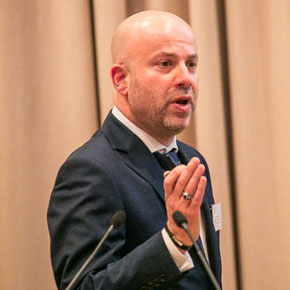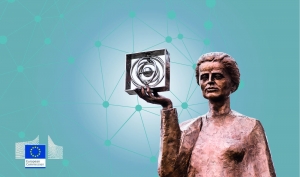ESR6
Project title: Patentability of AI Generated Inventions: a Case Study on Pharma
Researcher: Francesca Mazzi
Francesca Mazzi (Assisi 04-10-1990) completed her master degree in law in 2014 at Luiss Guido Carli University of Rome with a thesis in Private Comparative Law about Round Trip Investments in China. During her studies, she had traineeship experiences in law firms based in London and Beijing. After graduation, she volunteered in India and she worked for a private firm in the field of fashion and international business.
In 2016 she attended an LLM in Computer and Communications Law at Queen Mary University of London, specializing in Data Protection, Information Security, E-commerce law and Intellectual Property and the creative industries, with a final dissertation about the lack of copyright protection for non-human generated works in the US.
Francesca speaks Italian, English and Spanish.
Email: f.mazzi@qmul.ac.uk

Host Institution: Queen Mary University of London; Degree Partner: Maastricht University
Objectives:
DESCRIPTION, RESEARCH QUESTION(S)
Artificial Intelligence and, in general, 4th industrial revolution technologies are bringing radical changes to everyday life. Such technologies allow the automation of not only physical tasks but also intellectual tasks, previously performable by human beings only. The ongoing diffusion of smart processes involves, amongst others, inventive activities. Indeed, AI already has, and will increasingly have, a determinant role in those activities that can lead to inventions. Can and should inventions generated by AI be patented?
The patent system has proven to be adaptable to technological advancement in the past. Nonetheless, the revolutionary scope of interconnected technologies, the rapidity of their constant development and the peculiarities of their functioning, such as the “black box” AI, are likely to challenge practically and theoretically fundamentals of patent law.
Therefore, the present research seeks to investigate the potential patentability challenges caused by the engagement of AI and 4th industrial revolution technologies for the production of potentially patentable outcomes ( “AI generated inventions”). Given the technological neutrality of the patent system, the pharmaceutical industry is analysed as case study due to the significance of the sector, the ever-growing role in inventive activities therein and the peculiar market competition in relation to R&D investments.
The thesis investigates whether the advent of AI generated inventions challenges the justifications of the patent system. Moreover, the research evaluates to what extent AI generated inventions can and should obtain patent protection in light of specific formal and substantial patentability requirements, such as inventorship, inventive step and sufficiency of disclosure.
METHODOLOGY
The research is based on traditional black letter methodology, via analysis of statutory provisions and line of cases, through arguments by analogy, analysis of wording and legal history as a means of understanding, criticizing and assessing the state of the law. Additionally, the researcher engaged in comparative analysis of different jurisdictions and qualitative empirical research.
Indeed, the secondments at Hovione and EFPIA allowed the researcher to conduct semi-structured interviews with relevant stakeholders, from heads of IP departments to inventors. The results of such interviews contribute to the robustness of the findings of the thesis.
Expected Results:
The aim of the thesis is to evaluate the efficiency of the role that IP rights play in the pharmaceutical sector, as a means to incentivise the creation, the introduction and the dissemination of new products in the relevant markets; and to make recommendations to policy makers regarding the eventual need of adaptation of the regulatory framework in order to meet current challenges, specifically the challenges posed by the 4th industrial revolution.
Hence, ESR6 is aimed at evaluating whether the patent system is equipped to continue promoting quality and innovation in the pharmaceutical sector in light of the technological advancement. Therefore, the identified research questions will provide not only an overview of the challenges posed to the patent system by the engagement of 4th industrial revolution technologies In inventive activities from a legal perspective, but also recommendations in terms of potential measures to implement from a policy perspective.
Supervisors:
Co-supervisor:




